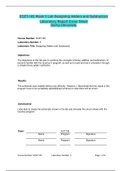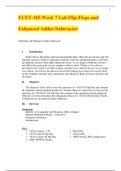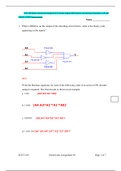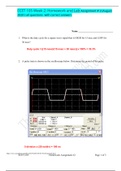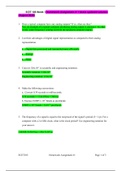Devry University
Your school or university
Improve your search results. Select your educational institution and subject so that we can show you the most relevant documents and help you in the best way possible.
Ok, I understand!
ECET 105
- ACCT 212
-ACCT 212
.Essentials of Information Systems
10
101875382_LCSW
2022 AHIP Finl Ex(Vers-1, 50 Q & A,
325
4 SETS ACCT505
4 SETS ACCT505 MIDTERM EXAM
504 Accounting And Finance
62540
7TH Medical surgical nursing ignatavicius
A miller G B S
AA 1 ATI
ACC 212
ACC 290
ACC 504
ACC 555
ACC 591
ACC 594
ACC 616 Topic 1 DQ 1
ACC-350
ACC-350 Final Exam
Accounting
ACCOUNTING 346
ACCOUNTING AC 555
Accounting Business Finance humanities social sciences
Accounting Terms and Definition
Accounting Terms and Definitions
ACCT 212
ACCT 212 Financial Accounting
ACCT 212 - DeVry University, Chicago
ACCT 212 212
ACCT 212 Final Exam 2021
ACCT 212 Financial Accounting
ACCT 212 Financial Accounting / ACCT212 Financial Accounting
ACCT 212 FINANCIAL ACCOUNTING QUIZ
ACCT 212 Week 1 Quiz
ACCT 212 Week 2 Quiz
ACCT 212 Week 4
ACCT 212 Week 4 Mid-term
ACCT 212 WEEK 4 MIDTERM
ACCT 212 Week 4 Quiz
ACCT 212 Week 5 Quiz
ACCT 212 WEEK 6 QUIZ
ACCT 212 WEEK 7 QUIZ
ACCT 212 Week 8
ACCT 212 WEEK 8 FINAL EXAM
ACCT 212 Week 8 Final Exam Summer 2020
ACCT 212 WEEK 8 QUIZ
ACCT 212 Wk 7
ACCT 251
ACCT 304
ACCT 304 Final Exam
ACCT 304 WEEK 8 FINAL EXAM
ACCT 324
ACCT 324 Week 4 Midterm exam 2019-2020
ACCT 346
ACCT 346 - Managerial Accounting
ACCT 346 Quiz Week 6 Managerial Accounting
ACCT 434
ACCT 451
ACCT 503
ACCT 504
ACCT 504 Final Exam
ACCT 504 Final Exam (ACCT504FINALEXAM(ACCT5
ACCT 504 Final Exam )
ACCT 504 Week 8
ACCT 504 Week 8 )
ACCT 505
ACCT 505 CHAPTER 1 SELF�STUDY QUIZ
ACCT 505 FEDERAL TAX FINAL EXAM
ACCT 505 FINAL EXAM GUIDE SET 3
ACCT 505 FINAL EXAM.
ACCT 505 Managerial Accounting
ACCT 505 MIDTERM EXAM QUESTIONS AND ANSWERS
ACCT 505 PRACTICE QUIZ 2
ACCT 505 QUIZ 1 WEEK 2
ACCT 505 WEEK 2 QUIZ 1
ACCT 505 WEEK 4 MIDTERM EXAM ANSWERS
ACCT 505 WEEK 6 QUIZ-2
ACCT 505 Week 8 Final Exam
ACCT 505 Week 8 Final Exam )
ACCT 505 WEEK 8 FINAL QUIZ
ACCT 505 WEEK 8: FINAL EXAM GUID
ACCT 505 WEEK 8: FINAL EXAM GUIDE
ACCT 505 WEEK2 QUIZ
ACCT 525
ACCT 540
ACCT 550
ACCT 551
ACCT 553
ACCT 553 Federal Taxes And Management
ACCT 553 Federal Taxes and Management Decisions
ACCT 555
Acct 555 external auditing homework week 4
Acct 555 Week 6 Homework
Acct 555 Week 7 Homework
ACCT 555: EXTERNAL AUDITING
ACCT 562
ACCT 562 Auditing; An Operational And Internal Perspective Including Fraud Examination
ACCT 564
ACCT 567
ACCT 573
ACCT 574
ACCT 601
ACCT GENERALLY
ACCT:555- AUDITING
ACCT212
ACCT212 Financial Accounting
ACCT212 WEEK 5 QUIZ 1
ACCT251
Acct444
ACCT451 Accounting Info systems
ACCT500
ACCT504
ACCT505
ACCT525
ACCT555
ACCT567
ACCUPLACER
ACT 441
ACT 525
ACT525
Adult Med Surg
Advanced Practice Nursing
Advanced Program Management
AGNP
AGNP BOARD
ALCANO’S FUNDAMENTALS OF MICROBIOLOGY
Ancient Greek Philosophers Final Milestone
Ancient Greek Philosophers Milestone 1 Exam 2020 DeVry University
Ancient Greek Philosophers Milestone 1 Exam 2020 DeVry University
Ancient_Greek_Philosophers
Anthropology
AQA AS Level Biology Paper 1 2020 Mark scheme
Art-A Brief History
Assessment Eye, Ear, Nose and Throat
ATI 2019
ATI ANATOMY
ATI DOSAGE CALCULATION
ATI GERONTOLOGY
ATI Maternal
ATI Maternal Newborn
ATI MED-SURG
ATI MENTAL HEALTH
ATI NURSING
ATI PN Management Online Pract 2022/2023
ATI RN
ATI RN EXIT
ATI TEAS
ATI TEAS 7
ATI TEAS 7 Biology
ATI TEAS 7 Reading
ATI TEAS 7 READING section
ATI TEAS 7 SCIENCE (ACTUAL SCREENSHOT AND Q&A
ATI TEAS 7 SCIENCE Q&A EXA TES AUGUST 2022)
ATI TEAS MATH - TEAS 6
ATI TEAS SCIENCE
Auditing
Auditing-A Practical Approach with Data Analytics
AZ 104
BA 108
Baltzan: Management Information Systems 4th Edition Test Bank
Basic and Clinical Pharmacology
BIAM 510 Week 3 Case Study, Measuring Effectiveness
BIAM 510 Week 5 Case Study, Customer Survival Analysis and Retention
BIAM 510 Week 6 Case Study, Market Basket Analysis
BIBL 104
BIO 135
BIO 135 WEEK 1 LAB REPORT TITLE: SEPARATION OF SALTWATER MIXTURE
BIO 152
BIO 195
BIO 195 Quizzes 1-7
BIO 195 Weekly quizbank week 1- 7
BIO 255
BIO390- Molecular Biology Week 4
BIO390- Molecular Biology Week 5 Quiz
BIOL 1001 Week 6 Exam.docx
Biology
BIOS
BIOS 105
BIOS 105 Fundamentals Of Human Anatomy And Physiology With Lab
BIOS 105 MID-TERM EXAM
BIOS 105 Midterm Exam
BIOS 105 Week 1 Quiz
Bios 105 Week one quiz
BIOS 135
BIOS 135 Lab Report:
BIOS 135 Foun Biol & Chem W/Lab
BIOS 135 Lab Report Format for ModelChem Labs
BIOS 135 Lab Report Week 3- Kidney Filtration Simulation
BIOS 135 Population Dynamics
BIOS 135 Week 1 Lab Report
BIOS 135 Week 2 quiz
BIOS 195
BIOS 195 Anatomy And Physiology For Health Science
BIOS 195 FINAL EXAM
BIOS 195 Midterm
BIOS 225
BIOS 242
BIOS 245
BIOS 251
BIOS 252
BIOS 255
BIOS 255 Unit 4 Midterm Exam
BIOS 256
BIOS 260
BIOS 260 Course Quizzes Week 1 – 7
BIOS 260 Fundamentals Of Pathophysiology
BIOS 280
BIOS 309
BIOS 390
BIOS 390 – Molecular Biology Week 1
BIOS 390 – Molecular Biology Week 2 Quiz Study Guide
BIOS 390 – Molecular Biology Week 3
BIOS 390 – Molecular Biology Week 6
BIOS 390 – Molecular Biology Week 7
BIOS 390 ERIC KYLE WEEK 3 & 4 : LAB
BIOS 390 Week 1 ,2 lab
BIOS 390 Week 1 LAB 1
BIOS 390 WEEK 4: LAB REPORT
BIOS Lab Report Week 4- Gram Staining
BIOS-195
bios105
BIOS105 63274
bios135
BIOS135 Week 1 Quiz
BIOS242
bios390
BIOS390 – Molecular Diagnostics
BIOSCIENCE 100
BIS 245
BIS 155
BIS 155 Devry University
BIS 155 Advanced PC Applications With Lab
BIS 155 Business Strategy
BIS 155 Final Exam Submission
BIS 155 Final Exam Submission / BIS155 Final Exam Submission
BIS 155 Final Exam Submission: Car Parts Service
BIS 155 Final Exam Submission: Music On Demand
BIS 155 Week 8 Final Exam Submission
BIS 155 Week 8 Final Exam Submission: Super Shoes
BIS 245
BIS 245 Case Study Guide - Small Surgery Center
BIS 245 Devry University
BIS 245 - Database Essentials For Business With Lab
BIS 245 Case Study Guide: Small Surgery Center / BIS245 Case Study Guide: Small Surgery Center
BIS 245 Database Essentials for Business with Lab
BIS 245 Final Exam
BIS 245 WEEK 5
BIS 245 WEEK 8
BIS 245 Week 8 Final
BIS 245 Week 8 Final Exam
BIS 245 Week 8 Final Exam: Devry University
BIS 245 Week 8 Final Exam/BIS245 Week 8 Final Exam
BIS 245 WEEK 8: FINAL EXAM
BIS 245: Case Study Guide - Small Surgery Center
BIS 245: Case Study Guide - Small Surgery Center - DeVry University, Chicago
BIS 245: Case Study Guide - Small Surgery Center - DeVry University, Chicago.
BIS 261
BIS 345
BIS-245 Final Exam
BIS15
BIS155 Final Exam Submission
BIS155 Final Exam Submission: Car Parts Service
BIS155 Final Exam Submission: Music On Demand
BIS155 Week 8 Final Exam Submission
BIS245
BIS245 245
BIS245 WEEK 8
BIS245 Week 8 Final Exam
BIS245 WEEK 8: FINAL EXAM
BIS245_WEEK 8_Final Exam
BLAW 310
boi 152
BOIS105
BSI 245
BSOP 209
BSOP 326
BSOP 334
BSOP 429
BSOP 429 Production Activity Control & Just-In-Time With Lab
BSOP 429 Week 4 Midterm Exam
BSOP 434
BSOP 434 Logistics With Lab
BSOP 434 Week 8 Final Exam
BSOP-326
BSOP429 Week 4 Midterm Exam
BSOP434 Week 8 Final Exam
Bsu 420
BUS 201
BUS 295 Solutions of Chapter
BUS 301
BUS5450 Organizational Behavior
BUSI 2001
BUSI 3003
BUSI 409
BUSI 411
BUSI 520
BUSINESS 201
BUSINESS ACCT 212
Business Communication
Business Statistics
BUSN 420
BUSN 115
BUSN 258
BUSN 278
BUSN 311
BUSN 319
BUSN 420
BUSN 420 Contracts: Introduction and Form
BUSN 420 Week 8 Final Exam Law -Questions and Well elaborated Answers and MCQs: DeVry University, Chicago
BUSN115
BUSN379
CAPSCARE
CARD 405 Week 8 SELF EVALUATION |Week 8 Self-Evaluation Assessment Name
Care of Older Adult Exam Prep
CASE STUDIES , CHAPTER 1 - CHAPTER 19|CAPSCARE ACADEMY FOR HEALTHCARE
Chapter 01 Limits, Alternatives, and Choices
Chapter 02 The Market System and the Circular Flow
Chapter 20- Heart Failure and Circulatory Shock Test Bank /NURS 3365
CHAPTER i10 ACQUISITION iAND iDISPOSITION iOF PROPERTY, iPLANT, iAND iEQUIPMENT
CHEM 120
CHEM 120 (CHEM120
CIS 115
CIS 246
CIS 321
CIS 321 Structured Analysis And Design
CIS 321 Structured Analysis And Design - DeVry
CIS 407A
CIS115
CIS321 WEEK 1
CIS321 WEEK 1 QUIZ
CIS321ILab2 FINAL
CIS336 336 q.uiz 4 fi.nal solved
CISCO NETWORK PROPOSAL PART 3 WAN AND SOHO SKILLS IMPLEMENTATION - UMUC
CLC 056
CLG
Clinical Reasoning
CLL 001
COLL 148
community health
Comp 230
COMP 230 WEEK 5 LAB VBSCRIPT MODULAR LAB REPORT VBScript Modular Lab Report
COMP 230 WEEK 5 LAB VBSCRIPT MODULAR LAB REPORT.
Comp Computer Applications Programming Comp 230 Introduction To Scripting And Database With Lab
COMP-230
COMP-230 Week 4 Lab VBScript IP Array Lab KEY
COMP230
Computer Methods for Chemical Engineers
computer science
Contemporary Nursing 7th Edition Issues, Trends, & Management Test Bank
Cost Accounting
Course NR 283
CSIS 340
Data Analytics
Davies Adult Echo
Dermatology Prescription
DEVRY 285
Devry HIST410
Devry HIST410 final exam
devry nr451
Devry PSYC 305
DEVRY UNIVERSITY
DEVRY UNIVERSITY & CHAMBERLAIN COLLEGE OF NURSING STUDENT LABORATORY SAFETY TRAINING AGREEMENT
DEVRY UNIVERSITY ACCT 555
DEVRY UNIVERSITY ACCT 555 MIDTERM EXAM. QUESTIONS AND ANSWERS.
DeVry University HSM 430 WEEK 4 MIDTERM
DeVry University Team Case Study: Database Design BIS245
DeVry University, Chicago - POLITICAL POLI 330N POLI330N week 6 quiz
DeVry University, Keller Graduate School Of Management,HSM 542
DEVRY285
Differential Equations
Disaster Recovery forensics
E-commerce -Business, Technology, Society
EC ENGR 170A
ECE 39
ECET 105
ECET 299
ECET 299 C++ & OOP
ECET 299 C++ oop
ECET 310
ECET 340
ECET 350
ECET 497
ECET-105
ECET105
ECET220
ECET230
ECET350
ECOM 201
ECON 1002
ECON 312N
ECON 545
Econ Final Exam review
ECON545
Economics
Economics Final Exam review
EDR 610
ELECTRONIC 11241
Endocrine and Metabolic Problems, Urgent Care Problems week 6 quiz| NURSING DIABETES M
ENG 216
ENGL 206
ENGL 216
ENGL 216 Technical Writing
ENGL 216 Week 3 Homework Assignment # 9 On Page 238 Writing Simple Instructions
ENGL 230
ENGLISH 101
ENTR 510
Essential Epidemiology
Essentials of Information System
Essentials of Information Systems-MIS 505
Essentials of Pathophysiology for Pharmacy
Esthetician
ETHC 445
ETHC 445 Final Exam with Answers
ETHC 445 Week 8 Final Exam 1 with Answers
ETHC 445 Wk 8 FINAL EXAM
ETHC 445 Wk 8 FINAL EXAM / ETHC445 Wk 8 FINAL EXAM
ETHC 445N
ETHC 445N Week 8 Final Exam :
ETHC-445
ETHC445 Wk 8 FINAL EXAM
Exam Elaborations
EYE EAR NOSE THROAT
FA 14
Fin 345
FIN 515
FIN 515 FINANCIAL MANAGEMENT
FIN 515 Week 4 midterm
FIN 515 -Managerial Finance
FIN 515 FINAL EXAM
FIN 515 Managerial Finance
FIN 515 MIDTERM EXAM
FIN 515 WEEK 8 FINAL EXAM
FIN 516
FIN 516 Advanced Managerial Finance
FIN 564
FIN 564 - Management Of Financial Institutions
FIN 564 : Management of Financial Institutions
FIN 564 Week 8 Final Exam >Management Of Financial Institutions
FIN 565
FIN 565 WEEK 8 FINAL EXAM
FIN MISC
FIN-515
FIN510
FIN515
FIN515 MANAGERIAL FINANCE
FIN515 MANAGERIAL FINANCE MIDTERM EXAM
FIN516
FIN564
FINANCE
Financial Accounting
Financial Foundations
FN510
FNCE 3001
FNP
for Introduction to Managerial Accountin
FORM B.180
Fortinash: Psychiatric Mental Health Nursing T
Fundamentals Of Nursing
Fundamentals of Nursing 10th Edition Potter Perry Test Bank
GED 260 GED260
Getta Byte Software Project Part 2 MGMT404 – Project Management
Globus- Quiz 2 - Part 2
GLOBUS-QUIZ 1 GLOBUS
GM 533 Applied Managerial Statistics
GM 400
GM 533
GM 588 Managing Quality
GM 591 Leadership & Organizational Behavior
GM591 B
GSCM
GSCM 209
GSCM 326
GSCM 520
GSCM 588
GSCM434
GSCM588
HANIM777 Arts & Hum
HBS 428
HCA 620 Week 3 and 7 Capstone Project
HEALTH EDUCATION SYSTEMS INC HESI BrainDUMPS PRACTISE QUESTIONS & ANSWERS
Health Information Exchange
Health Information Management
HESI
HESI A2
HESI A2 LATEST VERSION
HESI EXIT V4
HESI FOCUS ON MENTAL HEALTH EXAM
HESI MENTAL HEALTH
HESI Pharmacology
HESI V3
Hesi-rn Med-surg
HIM 335
HIM 335 Week 4 Midterm
HIM 335 Week 8 Final Exam
HIM 370
HIM 370 Course Project
HIM 370 Week 8 Final Exam
HIM 370 Week 8 Final Exam | Correct Solutions
HIM335
HIST 1001
HIST 108
HIST 405
HIST 405N
HIST 405N Week 3 Discussion: Manifest Destiny and the Mexican War of 1846
HIST 405N Week 5 Discussion: Industrialization, Imperialism and America s Entry Into WWI
HIST 405N Week 8 Discussion: Terrorism in the 21st Century
HIST 410
HIST 410N
HIST 410N FINAL EXAM 1 – QUESTION AND ANSWERS
HIST 410N FINAL EXAM 2 – QUESTION AND ANSWERS
HIST-405N
HIST-410N
HIST405 Quiz Week 6
HIST405N
HIST410
HISTORY
History 405N
HIT 120
HIT 203
HIT 205
HIT 205 - Week 5 Midterm Quiz
HIT 205 Final Exam
HIT 211
HIT 252
HLT 362 Week 1 Quiz
HLT 362V
HOSP 582
HOSP 585
HOSP 585 Hotel And Restaurant Management
HOSP 590 Event Planning And Management
HR 353
HR 587 Managing Organizational Change
HR 590 Human Resource Management
HR 593 Employment Law
HR 599 Benefits
HR 600 Human Resource Planning
HRM 330
HRM 530
HRM 587
HRM 587 587
HRM 587 Final Exam
HRM 587 Final Exam / HRM587 Final Exam
HRM 587 Final ExamSet 2 Answers
HRM 587 Managing Organizational Change
HRM 590 Human Resource Management
Hrm 592
HRM 593 Employment Law
HRM 599
HRM 599 Benefits
HRM 599 FINAL EXAM
HRM-587
HRM587 Final Exam
HRM591
HRMG 4202
HSM 310
HSM 320
HSM 320 : Health Rights and Responsibilities (HSM
HSM 340
HSM 340 Health Services
HSM 410
HSM 420
HSM 430
HSM 541
HSM 542
HSM 543
HSM 543 Health Services Finance
HSM 544
HSM 544 Week 7 Course Project: The Nursing Shortage and Medical Errors
HSM 544 WEEK 8
HSM 544 WEEK 8 FINAL EXAM 1
HSM310
HSM340 CO HSM 340
HSM54
HSM542
HSM543
HSM544
HSRT-HEALTH SCIENCE REASONING
HUMANITIES 303
HUMN 303
Informatics Glossary. All of them fully defined and explained
Integrated Business
Intermediate Accounting
Intermediate Accounting
introduction of nursing
Introduction to Information Systems
Introduction to Python
INTRODUCTION_TO_ETHICS_SOPHIA_MILESTONE 4
IS 589 Networking Concepts & Applications
IS 589 Networking Concepts & Applications
IT 380: Final Project Milestone 1
IT380
JADM 100 Introduction to Criminal Justice
LAS 432
Law 421
Law and Society Section A - Summary
LAW MISC
LAWS 310
LAWS 310 The Legal Environment
LCSW
Legal Research and Writing
LMSW
LPN 100
LPN EXIT
LPN to RN Mobility
LPN to RN Mobility 2023 C A
MAC 3701
Management - BUSN 278
Management and Cost Accounting
Managerial Accounting Module 7 Quizzes WITH ANSWERS
Managerial Economics 6th edition Test Bank
MARKETING 572
MAT 117
MAT 302 WEEK 7 TEST VERIFIED A+
MAT-144
mat144
Matching Supply and Demand
Maternity HESI 1 TESTBANK
Math 110
MATH 114
MATH 114 Algebra For College Students: DeVry (MATH
MATH 114N
MATH 221
MATH 221 Statistics For Decision Making
MATH 221 Week 1 Discussion Descriptive Statistics latest complete solution Graded A
MATH 221 Week 2 Discussion Probabilities in Real World latest complete solution Graded A
MATH 221 Week 3 Discussion Discrete Probability Variables latest complete solution Graded A
MATH 221 Week 3 Quiz: Statistics for Decision-Making
MATH 221 Week 4 Discussion Interpreting Normal Distributions latest complete solution Graded A
MATH 221 Week 5 Discussion Confidence Interval Concepts latest complete solution Graded A
MATH 221 WEEK 5 QUIZ
MATH 221 Week 6 Discussion: Hypotheses in the Real World latest complete solution Graded A
MATH 221 Week 7 Discussion: Regression latest complete solution Graded A
MATH 221 Week 7 Quiz
MATH 225N
MATH 225N Week 1 Evidence, Claims, and types Questions / Answers
MATH 225N Week 2 Discussion: Graphing and Describing Data in Everyday Life
Math 260
Math 270
MATH 270 Applied Calculus II
MATH 270 Applied Calculus II - DeVry
MATH 302
MATH 302 Final Exam 1 - Question and Answers
MATH 302 Final Exam 2 - Question and Answers
MATH 302 Quiz 1 - Question and Answers
MATH 302 Quiz 2 with Answers
MATH 302 Quiz 3 - Question and Answers
MATH 302 Week 5 Quiz - Question and Answers
MATH 399N
MATH 533
MATH 533 APPLIED MANAGERIAL STATISTICS
MATH 533 Final Exam answers
MATH 533 Final Exam questions and answers
MATH 534
MATH 534 APPLIED MANAGERIAL STATISTICS
MATH-114
MATH-533
MATH-534
MATH114
MATH221
MATH221 Graded week 7 quiz
MATH260
MATH260 WEEK 7 LAB WORKSHEET
MATH533
MATH534
MATH534_Final_Exam_Solutions
MATH534: Applied Managerial Statistics
MBA 570
MBA 570 CO QUIZ 2 QUESTIONS AND ANSWERS
MBA FI565
MBUS 301
MCQs and EMQs in Human Physiology, 6th edition by Ian C. Roddie, William F. M. Wallace
MDD-461-10346 Senior Project II
MED MISC
MED SURG 324
Med-Surg
Med-Surg Test Bank 150 Questions /Answers With Rationales
Med-Surg Test Bank 150 Questions with Answers and Rationales.
MEDICAL CO 111-66638
Medical-Surgical Nursing Concepts For Interprofessional Collaborative Care By Donna D. Ignatavicius M. Linda Workman Cherie Rebar
MEDSURG Nclex practive
MGMT 303
MGMT 340
MGMT 404
MGMT 404 ALL I
MGMT 404 ALL IL
MGMT 404 Course Project: Getta Byte Software Project - Fi 2
MGMT 404 Course Project: Getta Byte Software Project - Final Part 2
MGMT 404 Course Project: Getta Byte Software Project - Part 1
MGMT 404 Course Project: Getta Byte SoftwareProje
MGMT 404 Getta Byte Week 4
MGMT 404 Project Management
MGMT 404 Project Management (MGMT404PROJECTMANAGEME
MGMT 408
MGMT 410
MGMT 520
MGMT 520 Legal Political and Ethical dimensions in Business
MGMT 530
MGMT 591 CHANGE & TRANSFORMATION
MGMT 597
MGMT 597 Week 8 Final Exam
MGMT MISC
MGMT404
MGMT404Getta Byte Software Course Project
MGMT520
MGT 302 FINAL EXAM STUDY GUIDE
MGT 520 Business Ethics
MGT 521
MGT 597
MICROBIOLOGY FUNDAMENTALS 4th Edition
Microeconomics
Microscope Lab Worksheet
MIS 4038 Management Information Systems
MIS 505 Essentials Of Information Systems And Programming
MIS 535
MIS 535 Managerial Applications Of Information Technology
MIS 561
MIS 561 Week 4 Midterm
MIS 561 Week 4 Midterm Collection
MIS 564
MIS 564 FINAL EXAM PRACTICE 1 WEEK 7 WITH ANSWERS
MIS 581
MIS 581 - Final Project
MIS 581 Course Project Final Assignment: Integrated Program Management System
MIS 581 Wek 8 FinV 2)
MIS 581: System Analysis, Planning, & Control
MIS 581: System Analysis, Planning, & Control Hotel Reservation System
MIS 589
MIS 589 APPLIED RESEARCH PROJECT
MIS 589 APPLIED RESEARCH PROJECT.
MIS 589 Networking Concepts & Applications
MIS 589 Test Your Knowledge: Quizzes
MIS 589 Week 1 Quiz with Answers
MIS 589 Week 1 Test Your Knowledge Quiz
MIS 589 Week 2 : Physical Layer And Data Link Layer - Test Your Knowledge Quiz
MIS 589 Week 2 Quiz With Answers
MIS 589 Week 2 Quiz with Answers
MIS 589 Week 3 : Network Design - Test Your Knowledge Quiz
MIS 589 Week 3 Quiz with Answers
MIS 589 Week 4 Quiz with Answers
MIS 589 Week 4 Quiz with Answers
MIS 589 Week 5 Quiz
MIS 589 WEEK 6 QUIZ QUESTIONS ANS ANSWERS
MIS 589 Week 8 Final Exam With Answers
MIS 589 Week 8 Final Exam with Answers
MIS 589 Week4 Quiz : Wired,Wireless LANs,and Backbone Networks
MIS 589_Week 2 Quiz GRADED A
MIS 589_WEEK_7_QUIZ QUESTIONS AND ANSWERS
MIS 600
MIS 672
MIS-589
MIS561
MIS562_w7_assignment solutions
MIS564 Week 7 Practice Final Test WEEK 7: FINAL EXAM PRACTICE 1
MIS589
MKT 315
MKT 522
MKT 569
MKTG 522
MKTG 525
MKTG410 Course Project Advertising Campaign
MKTG522
MN 552
MN553 unit
MNGT 1211
MNGT 404
MS 900
NACE CIP
NACE CIP Level 1
NCLEX
NCLEX MEDICATIONS
nclex pn
NCLEX QUESTIONS TESTBANK
NCLEX RN
NCLEX THREE
NCLEX-PN
NetApp Certified Technology Associate
NETW 202
NETW 230
NETW 240
NETW 320
NETW 360 Wireless Tech & Svcs
NETW 420
NETW 563
netw 583
NETW 583 Strategic Management Of Technology
NETW 584
NETW 589
NETW 589 Wireless Communication
NETW NET230
NETW-202 Introduction to Networking with Lab
NETW202
Netw204
NETW208
NETW208 Introduction to WAN Tecnologies w/Lab
NETW230
NETW240
NETW310 Week 3 Lab Report Complete Lab Report
NETW583
NETWK 208
Neuroscience - Exploring the Brain 4th Edition by Mark Bear, Michael Paradiso Test Bank
Next Generation Accuplacer
NIH
NR 103
NR 222 Health And Wellness
NR 228
NR 228 Week 1 Exam 1
NR 228 Wk 1 1 : complete Sol
NR 281 Case Study Final
NR 283
NR 283-
NR 283- Pathophysiology.
NR 283-Worksheet for Week 1- Pathophysiology.
NR 288
NR 293
NR 304
NR 304 Final Worksheet
NR 305
NR 322
NR 324
Nr 324 Exam review ATI RN Fundamentals Proctored Focus
NR 326
NR 328
NR 328 - EXAM Review Of Knowledge 1
NR 328 - EXAM ROK 3
NR 351
NR 360
NR 361
NR 361 WEEK 3 &4 DISCUSSION Opportunities for Improvement with Usability and Interoperability
NR 361 WEEK 3 DISCUSSION Opportunities for Improvement with Usability and Interoperability
NR 390
NR 439
NR 439 Week 4 Discussion, Ethical and Legal Issues
NR 439 Week 5 Assignment: Reading Research Literature
NR 439 Week 6 Assignment: Research Article Critique Final Paper
NR 439 Week 6 Discussion, Data Results and Analysis
NR 439 Week 7 Discussion, Applying and Sharing Evidence to Practice
NR 439 Week 8 Discussion, Where Do You Go From Here
NR 446 DKA Case Study part 2
NR 451
NR 503
NR 503 503 Essential Epidemiology
NR 503 Essential Epidemiology / NR503 Essential Epidemiology
NR 506
NR 507
NR 507 Final Study Guide Reproductive
NR 508
NR 509
NR 511
NR 534
NR 587
NR 599 Week 8 Final Exam
NR 601
NR 602 Week 8 Final Exam
NR 630
NR 661
NR281
NR439 Week 8 Discussion Assignment: Where Do You Go From Here?
NR442
NR503
NR503 503 Essential Epidemiology
NR511
NRNP 6645 - Midt study ge2022 updated
nrnp 6665
NRNP 6675 MIDT E corrsolu
NRS 434V
NS 320
NSG 3012
NSG 310
NSG 3370
NSG 5002
NSG 5003
NSG 6001
NSG 6005
NSG 6006
NSG 6020
NSG 6101
NSG 6420
NSG 6430
NSG 6435 Week 2 Quiz Answers
NSG 6440
NSG3023
NU 530
NU 6541 WEEK 2 CASE STUDY 3
NU 6541 WEEK 3 Case Study #3
NU 6541 WEEK 3 SOAP NOTE| FOLLOW UP EVALUATION
NU 6541 WEEK 4 School- Age Child Depression
NU 6541 WEEK 4 ASSIGNMENT PART 2
NU 6541 WK4 Adolescent Body Image
NUR 4165
NUR 101
NUR 106
NUR 2520
NUR 2989
NUR 330
nur 4156
NUR 550
NUR 6501 Advanced Patho Quiz 2 Answers
NUR 6501 Quiz 10 Answers
NUR 6501 Quiz 2 Answers Latest Update
NURS 3020 WEEK 2 Quiz ~ Walden University
NURS 3020 Week 4 Quiz
NURS 3069C Brian_Foster_Chest_Pain
NURS 3247 Pharmacology - Proctor2019 U
NURS 508 NR 509 Week 1 Quiz
NURS 508 NR 509 WEEK 2 QUIZ
NURS 5315 Pathophysiology | The Biologic Basis for Disease in Adults and Children 8th Edition | Test Bank
NURS 6051N Week 1 Quiz with Answers
NURS 6501
NURS 6501 FINAL TEST PREP VERIFIED A+
NURS 6501 Week 10 Quiz
NURS 6501N
NURS 6501N Final Exam - Questions and Answers
NURS 6501N Week 7 Quiz Set 1 with Answers
NURS 6512
NURS 6512N
NURS 6521
NURS 6521 Final Exam
NURS 6521 WEEK 10 DISCUSSION , HORMONE REPLACEMENT THERAPYAdvanced Pharmacology
NURS 6521 WEEK 4 QUIZ
NURS 6531 ADV. PRACTICE CARE FOR ADULTS
NURS 6531N
NURS 6540
NURS 6541
NURS 6541 patho quiz 6
NURS 6550
NURS 6551
NURS 6560
NURS 6565N
NURS 6630
NURS 6630 midterm Exam-Approaches to treatment latest Update Jan 2022
NURS 6630 WEEK 2 ASSIGNMENT MOOD DISORDER ~ Walden University
NURS 6640
NURS 6650
NURS 6650 FINAL EXAM ANSWERS
NURS 6660
NURS 6670
NURS-6501N
NURS-6521N ADVANCED PHARMACOLOGY
NURS-6531N-8,Adv. Practice Care of Adults.2018 Summer Qtr
NURS507
NURS6521
NURS6521N
NURS6531
NURS6630 FINAL EXAM
NURSING
NURSING 100Pathophysiology Final Exam(
NURSING 101
NURSING 4685
NURSING 545
NURSING 6011
NURSING 602
NURSING C918
NURSING LP N 100
NURSING LPN 100
nursing misc
NURSING NR 446
Nursing NR 505
NURSING NS
NURSING NURS:341
NURSING Pharm
Nursing School Test Banks COMBINED
NUTRI 228
NUTRITION 1
NUTRITION, SCI 228
Operations Management
OPS 571 FINAL EXAM
Organic Chemistry
PA 571
PA 582
PALS 2023
PATHOLOGY 265
Pathology 265 Patho-Renal
PATHOPHIS1
Pathophysiology Final Exam form A & B
PCI-DSS ISA
PEDS 328
Personal Finance
PHARM
Pharmacology and the Nursing Process 9TH
PHI 208
PHI 413
PHIL 347
PHIL 447N
phil347
Philosophy
PHSC 210
PHSC 210 Quiz 2 with Answers
PHYS 204
PHYS 310
PHYS204
Pilbeams Mechanical Ventilation 7th
PLTC 508
PN
POLI 303
POLI 330
POLI 330 Week 1 TCO Assessment Questions with Answers
POLI 330 WEEK 3 States and Stability Quiz
POLI 330 Week 4 TCO Assessment Questions with Answers
POLI 330 Week 5 TCO Assessment Question
POLI 330 Week 7 TCO Assessment Questions
POLI 330N
POLI 330N Week 2 Quiz 1 with Answers
POLI 330N Week 4 Quiz 2 with Answers
POLI 330N Week 4 Quiz 3 with Answers
POLI 330N Week 6 Quiz 2 with Answers
POLI 330N Week 8 Final Exam
POLI 330N Week 8 Final Exam 2 with Answers
POLI 330N Week 8 Final Exam 3 with Answers
POLI 330N Week 8 Final Exam 5 with Answers
POLI330
Politics and Political Science Exam
Praxis II: English Content & Analysis Exam
Prep U
PROJ 330
PROJ 410
PROJ 410 Final Exam
PROJ 586
PROJ 587
PROJ 592
PROJ 598 - Contract And Procurement Management
PROJ430 Advanced Project Management
PROJ586 Final Exam 2
Project Management
PROJECT MA 586
Prophecy general ICU A V3 Que& Anrs; Fal
PSY 205
PSY 665
PSYC 1001
PSYC 110
PSYC 110 Final Exam
PSYC 110N
PSYC 290
PSYC 290 Lifespan Development
PSYC 290N
PSYC 290N Week 2/PSYC 290 Lifespan Development
PSYC 290N Week 6 Middle Adulthood
PSYC 290N Week 6: Quiz and answer/ DeVry
PSYC 290N WEEK 8 FINAL EXAM
PSYC 290N Week 8 Final Exam BEST STUDY GUIDE FOR EXAMS/PSYC 290 Lifespan Development -
PSYC 290N Week 8 Final Exam BEST STUDY GUIDE FOR EXAMS/PSYC 290 Lifespan Development - )
PSYC 305
PSYC 305 , (PSYC305
PSYC 305 Final Exam
PSYC 305 Midterm Exam
PSYC3350
PSYCH 110 Midterm Exam
psychology
PSYCHOLOGY 303
Public Administration
Public Finance
Quizzes
RELI 330N
RELI 448
RELI 448N
RN
RN ADULT MEDICAL SURGICAL PROCTOR REMEDIATION
RN Comprehensive
RN COMPREHENSIVE C.180
RN Comprehensive Predictor 2019
RN VATI Nursing Care of Children 2022 Assessment
RN VATI NURSING CARE OF CHILDREN ASSESSMENT REMEDIATION
RUA 304
SAI440
SAUNDERS COMPREHENSIVE REVIEW FOR NCLEX THREE
SBE 310
SBE 310 - Small Business Management And Entreprene
SBE 330
SBE 330 Final Exam
sci 115
SCI 204 Quiz Wk 7
SCI 228
SCI 228 PRENATAL LIFECYCLE AND NUTRIT
SCI 228 Nutrition Health and Wellness Week 1 iLab 1, Part 1
SCI 228 NUTRITION, HEALTH, AND WELLNESS WITH LAB
SCI 228 Week 1 iLab Body Parts – Two Sets
SCI 228 WEEK 1 QUIZ 1
SCI 228 WEEK 2
SCI 228 Week 4 Midterm Exam
SCI 228 WEEK 6 QUIZ
SCI 228 Week 6 Quiz with Answers
SCI 228 WEEK 7 ILAB, PRENATAL LIFECYCLE AND NUTRITION
SCI 228 Week 7 Quiz
SCI 228 Week 7 Quiz with Answers
SCI 228 Week 8
SCI-228
SCI-228 Week 4 Midterm
SCI-228-10 SCI-228-10
SCI-228-60
SCI228
SCI228- NUTRITION HEALTH AND WELLNESS W/ LAB
SCI228: Nutrition, Health, and Wellness iLab Assignment
Science and Engineering of Materials
SE 571
SEC 280
SEC 311
SEC 311 Week 1
SEC 311 Week 4 Quiz
SEC 311Week _2_Quiz.
SEC 311Week 4 Quiz
SEC 311Week 5 Quiz.
SEC 340
SEC 360
SEC 360 - Data Privacy And Security
SEC 571
SEC 571 - Principles Of Information Security And Privacy
sec-360
SEC311 Week 8 Final Exam
SEC360
SEC402
Sepsis
shadow health
SOC 185
SOC 325
SOC 480
SOC-325
SOC185
SOCIOLOGY 185
SOCIOLOGY 325
SOCS
Socs 185
SOCS 185 Final Exam – Question and Answers
SOCS 185 Final Exam – Question with Answers
SOCS 185 FINAL EXAM 1 – QUESTION AND ANSWERS
SOCS 185 FINAL EXAM 2 – QUESTION AND ANSWERS
SOCS 185 FINAL EXAM 3 – WEEK 8 QUESTION AND ANSWERS
socs 185 final xam
SOCS 325
SOCS 350
SOCS 350N
SOCS-325
SOCS185
SOCS325
SOCW 6111
SOPHIA
SOPHIA _US HISTORY UNIT 1 CHALLENGE 3 – 100% CORRECT
sophia philosophy milestone 2
SOPHIA UNIT 1
sophia unit 1 philosophy milestone
SPCH-277-12638
Stat 200 Midterm Exam
STAT 200 Quiz 1 VERIFIED A+
STAT 200 Quiz 2 PHOENIX VERIFIED A+
STAT 200 QUIZ 3 VERIFIED A+
STAT MATH 534
STAT200
Statistical Concepts
STATISTICS 101
Statistics Math 221
STRAMA TESTBANK FOR PRELIMS CH1-4 BSA BA 15
STRATEGIC HUMAN RESOURCE MANAGEMENT, STRATEGIC PLANNING, CHANGE AND PERFORMANCE
Strategic Management
STRATEGIC MANAGEMENT EXAM REVIEW QUESIONS WITH CORRECT ANSWERS BEST REVISION GUIDE
Systems Analysis and Design 10th Edition Test Bank
Taxation
TEAS ENGLISH 7
TECHNICAL GSCM-326
TEST BANK 132
Test Bank - Fundamentals Of Nursing
Test Bank - Introduction to Maternity and Pediatric Nursing 7e
Test Bank - Pathophysiology: The Biologic Basis for Disease in Adults and Children
TEST BANK 123
TEST BANK 132
TEST BANK 132 )
Test Bank Chapter 14- Mechanisms of Infectious Disease NURS 3365
Test Bank for Economics for Managers 2nd Edition
Test Bank for Economics for Managers 2nd Edition Part 1
Test Bank for Medical-Surgical Nursing Critical Thinking in Client Care, 4th Edition Priscilla LeMon
Test bank for Principles of Marketing, 18th Edition Philip Kotler Gary Armstrong
Test bank for Principles of Marketing, 18th Edition Philip Kotler Gary Armstrong PDF
Test Bank Maternity And Pediatric Nursing 3rd Edition
Test-Bank-for-M-Organizational-Behavior-1st-Editio
Texas Teachers
The Future of Business-The Essentials
TSIA2 ENGLISH LANGUAGE ARTS AND READING
Unlock New Ans- HIT Strategy/Migration PathIn health care
US HISTORY
Valuation
Varcarolis’ Foundations of Psychiatric Mental Health Nursing: A Clinical Approach, 8th Edition
WEB 375
WEB 375 Week 1 Lab Report: Basic Linux Review
WEB-375
WEEK 2 HOMEWORK
WEEK 3 HOMEWORK
WEEK 3: LAB
WEEK 4 QUIZ
WEEK 5 & 6: LAB BIOS390
week 5 Acct 555 external auditing homework
WEEK 5: LAB: transcription in prokaryotes
WEEK 6: LAB: isolate Plasmid DNA
WEEK 7: QUIZ
WEEK 8 FINAL EXAM
Week 8_ Final Exam_ Culture and Society
WellCare Already Passed
